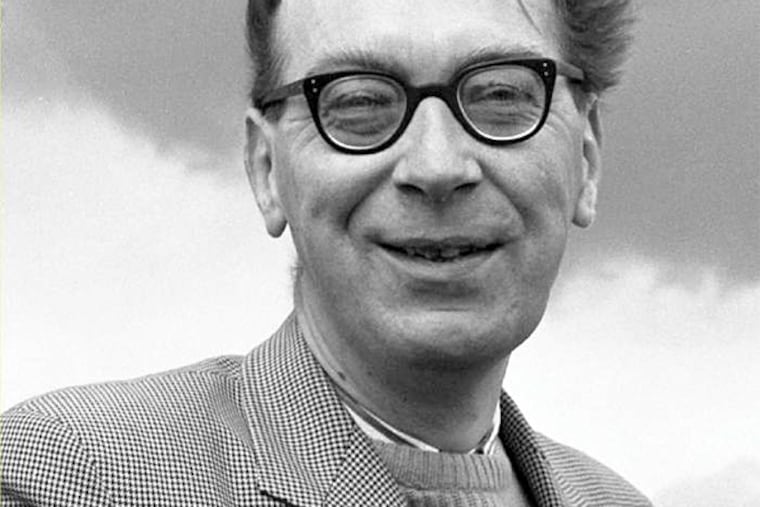A biography corrected, but still sad
James Booth begins this book by reminding readers that Philip Larkin is "by common consent, the best-loved British poet of the last century."

Philip Larkin
Life, Art and Love
By James Booth
Bloomsbury Press. 532 pp. $35
nolead ends nolead begins
Reviewed by
Frank Wilson
James Booth begins this book by reminding readers that Philip Larkin is "by common consent, the best-loved British poet of the last century."
Larkin's most famous line is unprintable in a family newspaper, but almost as well-known is the beginning of "Annus Mirabilis": "Sexual intercourse began / in nineteen sixty-three . . . Between the end of the Chatterley ban / And the Beatles' first LP."
There is, however, a good deal more to Larkin than wry social commentary. His greatest line is probably "What will survive of us is love."
However secure Larkin's reputation as a poet, his reputation as a human being plummeted after the 1995 publication of the official biography written by former British poet laureate Andrew Motion. Booth, for 17 years a colleague of Larkin's at the University of Hull, where Larkin was librarian, clearly intends this book to set the record straight.
There is no doubt that in his correspondence Larkin was frequently given to distinctly un-PC outbursts, but Booth convincingly demonstrates that "for all his verbal transgressiveness, it is impossible to imagine Larkin ever acting with racist motives." In fact, he seems to have been almost unfailingly kind and considerate to each and all.
Nevertheless, it is a sad life that Booth recounts. The man who came to be thought of as the "bachelor hermit of Hull" simply could not commit himself to any of the several women he became involved with.
In the end, there was only the poetry, and that, appropriately, is the lens through which Booth would have us view the life, although Larkin's inspiration dried up some years before his death at 63 in 1985. "I haven't given poetry up, but I rather think that poetry has given me up," he said.
He is the great post-religious poet, and his work is preoccupied from first to last with an inconsolable fear of death. So it is fitting that his last truly great poem, finished in 1977, was "Aubade," which Larkin himself referred to as his "in-a-funk-about-death poem":
. . . this is what we fear-no sight, no sound,
No touch or taste or smell, nothing to think with,
Nothing to love or link with,
The anaesthetic from which none come round.